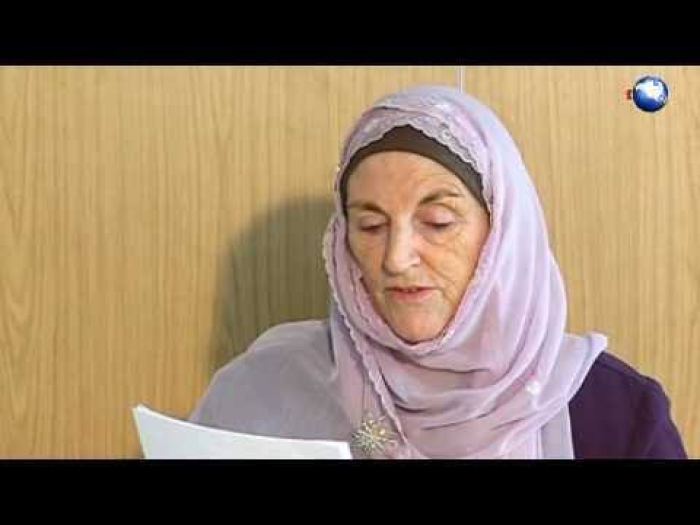Tributes to Aishah Ahmad Lemu (1940-2019)
She was a woman of gold. Yes. She was golden in speech conduct and carriage. But she was actually more ‘golden’ than gold. How and with what would you measure or compare a woman who combined nobility of character with stellar intellectual ability? How might we begin to gauge, in material terms, the uncommon qualities […]

late Aisha Ahmed Lemu
She was a woman of gold. Yes. She was golden in speech conduct and carriage. But she was actually more ‘golden’ than gold. How and with what would you measure or compare a woman who combined nobility of character with stellar intellectual ability? How might we begin to gauge, in material terms, the uncommon qualities and virtues in a woman who became the Aisha of our time so that the “Aishas” of these times may take cue?
She was. Yes. I refer to her in the past simply because she is no more in the present. The beat stopped for her a couple of days ago. Like it stopped for his mother and for his uncle. Like it stopped for them all- your father and mine; your mother and hers. That exactly is who we are: you and me. We are all sons and daughters of the dead; products of extinction on the ‘tableau’ of destruction. Recall, at this juncture, the great Abbasid poet, Abi Tayyib al-Mutannabi. Apparently buffeted by the ephemerality of life and living, al-Mutannabi says – “We are descendants of the dead and how come? / We constantly detest the content of the cup from which we are all fated to sip”.
Yes. She is gone forever. She has transited from this clime to the other clime; she has departed this world in order to arrive the next world. She laid still, deathly still; like others before her. The face of beauty, of tranquillity; worth more than rubies; now a face invaded by the corrosive sinews of death. But exactly how does it feel being dead? How does it feel being in the otherworldly? All alone; in the loneliness of the tight compartment where time loses its relativity; where the past meshes into the present; where the future leads not but either paradise or hell. Ask the dead. Questions only the living could ask the dead; questions the dead could answer not for the living but for the dead.
Shaykh must have contemplated her face for the last time. Just before her interment. My brother would have kissed her forehead. He must have craved to hold her, like he always did; like the son would whenever he desires succour and comfort in the paradise of his mother’s care. There she laid – one of the best women Shaykh would have desired to have as wife. There she goes- to eternity. It feels as if it was only yesterday she emerged into this clime and land. It feels as if this clime never witnessed her type.
Thus this Friday, I invite you to join in me in mourning the dead of a woman who found Islam not by chance, like you and me, but by choice. To find Islam by chance is to be born a Muslim by chance; into a Muslim home where to be a Muslim is a given; where Islamic totems and markers have become cultural. Yes. To find Islam by chance is to run the risk of relating to the Din in an ahistorical manner; to lose the opportunity to establish an intellectual premise for the supremacy of Islam in the comity of beliefs. To be a Muslim by chance is to run the risk of leaving the religion by chance; of being deprived of the weapon with which the Muslim subject could assert the Islamicity of his or her identity apodictically.
Thus I pay this tribute to the departed who became a Muslim by choice. Yes. She became a Muslim by choice. She rose, beyond and above the feckless plum and comfort of her immediate environment, of the ‘north’, of London, as soon as the light of Islam was shown to her heart. There she laid- the subject who found no attraction in “Bridget” particularly at a time the Nigerian landscape was in dire need of an Aishah. There she laid- the servant of the Almighty who once served as Amirah of the Federation of Muslim Woman Association of Nigeria (FOMWAN) at a time Nigerian Muslim women were in acute need of a star who would illuminate the dark recesses of women sexual objectification and pseudo-Islamic patriarchal domination. There she laid- in silence- a one-time author, editor, educator, social mobilizer, bridge-builder, persuasive speaker, and the virtuous woman. She came to this world incognito and succeeded in soaring and towering to the greatest heights only virtuous women of her ilk could aspire to.
Join me in condoling with the family of Shaykh Ahmad Lemu in Minna, Niger State on the death of our sister and mother in Islam, Hajia Aisha Ahmad Lemu. Join me in sharing these moments of grief and complete submission to the will of the Almighty with her children on the death of their mother who departed this world very timely. Hajia Aishah Lemu lived an exemplary life. In her conduct, candour and carriage lie great lessons for the ‘Aishas’ of this world. Yes. Aishah Ahmah Lemu knew Islam and lived Islam. Not for once, not in one instance did she subject her husband to public opprobrium. In her life are lessons for this and that “Aisha’’ to emulate.
